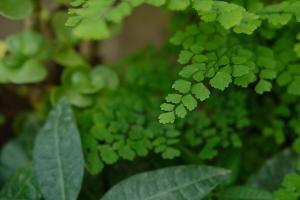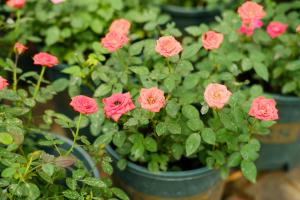Planting Fruit Trees: Proper Spacing is Key
Fruit trees are a beautiful addition to any garden or orchard, providing a bountiful harvest of delicious fresh fruit. However, many people make the mistake of planting their fruit trees too close together, which can lead to a number of problems down the line. In this article, we'll discuss how far apart you should plant fruit trees to ensure healthy growth and a profitable harvest.
The Importance of Proper Spacing
First and foremost, proper spacing is essential for the health and growth of your fruit trees. If they are planted too close together, they will compete for resources such as sunlight, water, and nutrients. This can lead to stunted growth, poor fruit production, and even disease or pest infestations.
On the other hand, if fruit trees are spaced too far apart, you may be wasting valuable gardening real estate and limiting your harvest potential. Additionally, spacing trees too far apart can lead to vulnerabilities or stress for the trees, such as increased wind damage or difficulty pollinating.
Recommended Spacing for Common Fruit Trees
Now that you understand the importance of proper spacing, let's talk specifics. Here are general guidelines for spacing some of the most common fruit trees:
Apple Trees
Plant apple trees at least 20 to 25 feet apart, and consider growing them in a support system (such as a trellis or espalier) to maximize growing space and fruit production.
Pear Trees
Pear trees should be planted at least 20 feet apart, although some varieties may need more space (up to 25 feet).
Cherry Trees
Cherry trees need at least 20 feet of space between them, but may require up to 30 feet for larger varieties.
Plum Trees
Plum trees should be spaced 15 to 20 feet apart, depending on the variety.
Additonal Considerations
While the above guidelines are a good starting point for spacing your fruit trees, there are a few additional factors to consider:
Rootstock
The rootstock of your fruit tree can affect how close together they can be planted. Some rootstocks will create smaller trees, which can be planted closer together, while others will create larger trees which require more space.
Soil and Light Conditions
Your specific growing conditions, such as soil quality and sun exposure, may impact how close together your trees should be planted.
Training Techniques
If you are using support systems or special pruning or training techniques, you may be able to plant your trees closer together while still achieving healthy growth and fruit production.
In Summary...
When it comes to planting fruit trees, proper spacing is key. While the recommended spacing may vary depending on the specific variety of tree and growing conditions, a good rule of thumb is to plant at least 15 to 30 feet apart, depending on the species. By giving your trees the space and resources they need to thrive, you'll be able to enjoy a bountiful harvest for years to come.

 how many times do yo...
how many times do yo... how many planted tre...
how many planted tre... how many pine trees ...
how many pine trees ... how many pecan trees...
how many pecan trees... how many plants comp...
how many plants comp... how many plants can ...
how many plants can ... how many plants and ...
how many plants and ... how many pepper plan...
how many pepper plan...

































